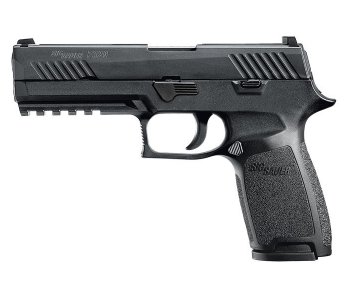When You’ve Never Touched Or Even Been in the Same Room as the Gun – But You’re Facing 15 Years in Prison, Charged in New York With Criminal Possession of a Weapon

In New York, a charge of Criminal Possession of a Weapon, pursuant to New York Penal Law § 265.03, can land you up to 15 years in prison – with a minimum sentence of 3.5 years. This is an onerous punishment as it is, but becomes incredibly draconian when a defendant is not even alleged to have had the gun on his person, or even been in the same car, room or building at the time of the discovery of the weapons. But arrests under such circumstances routinely occur in New York under the doctrine of constructive possession – where a defendant is held responsible for possessing weapons (or other contraband) where they had ready access to and control of the weapon/contraband or to the storage place where it was found – even if they did not physically possess the weapon at the time of arrest. People v. Manini, 79 N.Y.2d 561 (N.Y. 1992).
Many Guns Found Inside Building Owned By My Client — But Were They Possessed By Him?
Consider what occurred to a client of mine, years ago: a team of New York City detectives were about to enter a commercial building in Queens, acting on a tip from an informant that a suspect in a murder was hiding out inside. As they approached the building, shots rang out in the rear of the building and the officers saw the back gate “vibrating” – apparently some individuals were using the gate for target practice at a most inopportune time. As law enforcement stormed inside, numerous weapons, silencers, ammunition and recently spent shells were discovered, but none of the men inside were actually carrying any of the weapons at the time of their arrest. Fifteen minutes later, our client, the owner of the building arrived and, upon questioning by the detectives, acknowledged that he owned the building and “all this stuff inside.” He was immediately arrested and charged, along with the other defendants, with Criminal Possession of a Weapon in the Second Degree (P.L. § 265.03); Criminal Possession of a Weapon in the Fourth Degree (P.L. § 265.01(1)); Criminal Sale of a Firearm in the Third Degree (P.L. § 265.11(2)); Failure to Hold Permits for Possession and Purchase of Rifles and Shotguns (N.Y.C.A.C. § 10-303); and Criminal Possession of a Weapon in the Third Degree (P.L. §265-02(1)). At the time of his indictment, our client faced decades in prison and very possibly a de facto life sentence.
As any of the top New York gun possession attorneys know, nevertheless, the prosecutors faced a “heavy burden of establishing the ownership of a weapon found in an area occupied by several people and where no one individual could be said to have dominion and control of the weapon.” People v. Roberson, 390 N.Y.S.2d 900 (N.Y. 1976). Logically, this burden was further elevated in instances, as here, where the defendant was not even in the building where the weapons were found. People v. Perez, 127 Misc. 2d 309, 485 N.Y.S.2d 913 (Sup. Ct. 1984). Our client’s comment to law enforcement upon his arrival at the building where the guns were found – that he owned the building and “all this stuff” inside – appeared to be the single strand that held the People’s case together against him.
We argued that our client’s broad statement of ownership of the building and “all the stuff inside” did not, however, indicate that he was ever asked whether he owned the guns found inside. Similarly, no document supported the contention that he claimed he owned the guns. In People v. Bailey, 159 A.D.2d 1009, 552 N.Y.S.2d 733 (4th Dep’t 1990), the prosecution relied exclusively on proof that, during execution of a search warrant at defendant’s house, a gun was found in the pocket of a jacket lying on a bed. When asked by officers whose jacket it was, the defendant admitted that it was his. Nonetheless, the Court reversed the conviction of Criminal Possession of a Weapon in the Third Degree (P.L. § 265.02) because the defendant’s admission to ownership of the jacket did not furnish the requisite proof that the gun was his or that he knew it was in his jacket. The police did not display the weapon or reveal discovery of the gun in the pocket before asking whose jacket it was.
Constructive Possession Not Established — Case Dismissed on a Motion
Our argument worked – and the entire case against our client was dismissed as the theory of constructive possession of the firearms fell apart. Our client, while having access to the guns inside the building he owned, did not have actual possession of the guns or have dominion or control of them at the time they were seized. For more information on New York firearms charges and defenses, just click here. And call the New York firearms and weapons attorneys at the Law Offices of Jeffrey Lichtman at (212) 581-1001 to discuss your case today. It could mean the difference between spending decades in prison – or getting your case dismissed on a motion.
